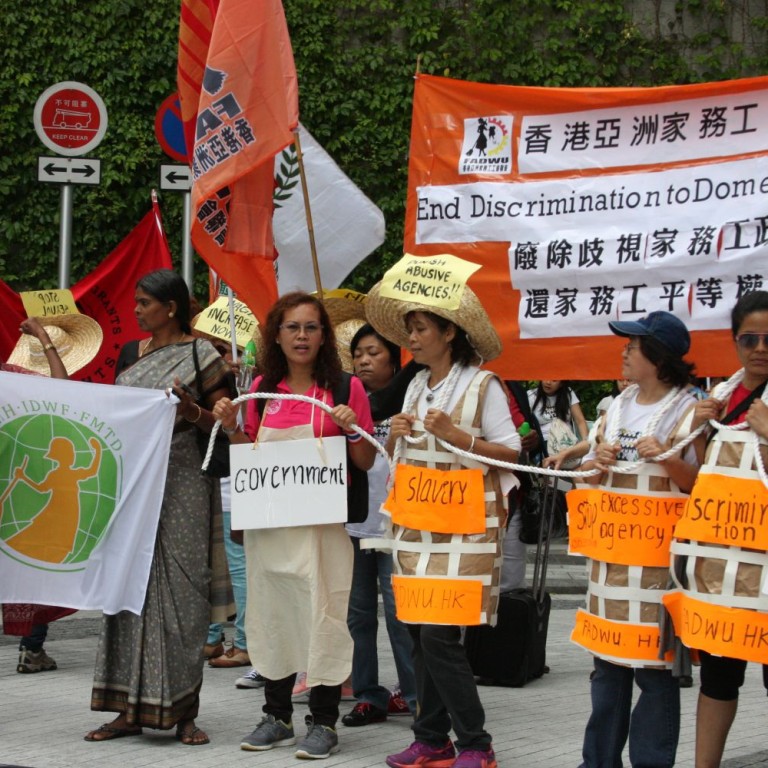
How to Be A More Responsible Employer to your Domestic Helper
We asked experts for their advice on how you can be a more professional, compassionate and responsible employer.

The nonprofit member-based organization promotes mutual understanding and respect between foreign domestic workers and employers in Hong Kong. It conducts cultural activities as well as talks and workshops. Open Door is in the process of putting together an Employer Best Practice Handbook and welcomes readers to share their ideas online.
opendoor.hk
What To Do
Communicate Expectations
Work expectations should be communicated as clearly and early as possible. Employers may want to focus on delegating the tasks at hand, while leaving some autonomy to the worker regarding how to complete them. Also remember that English or Cantonese might not be the domestic worker’s native language, and the employer may want to have the domestic worker repeat the instructions, especially if it’s a new task. To avoid miscommunication, encourage the worker to request clarification if they have not fully understood something.
Check In Regularly
After establishing a new work routine or set of tasks, meet with the worker regularly during quiet times. Ask about problems or suggestions regarding the new routine, and also give feedback on work performance.
Be Constructive
One of the top wishes of domestic workers—even more important than a high salary or appropriate types of work—is that they simply be treated with respect and patience by their employer. If the worker has not completed a task or met your expectations, do not react angrily or humiliate them. You may create a distant and hostile relationship and destroy an important feedback channel: the honest and accurate reports from the worker about what happens in your absence, or how certain arrangements are affecting their life. Instead, respond briefly, patiently and clearly when you note a mistake by the worker. During your regular check-in, create an open atmosphere that’s conducive to two-way communication and discussing how the overall routine can be improved.
Provide Privacy
Hong Kong homes tend to be small and there are often no clear working hours for live-in domestic workers. Thus domestic workers are often worked to exhaustion. During the least demanding times of day—typically after the children have been sent to school or after dinner—allow the worker to have their own time, space and freedom to enjoy an activity or some company.
Respect Food Customs
Live-in domestic workers are nearly all from Indonesia or the Philippines. They may have food customs and preferences different from yours. Take time to learn about them, and when you do your grocery shopping for the household, purchase foods that the worker might want to eat—be it coffee, dried fish or snacks. It would be a sign of respect for the worker’s different cultural background, as well as of their contribution to your household.
Set Priorities
Expecting one person to complete a wide range of tasks to a high degree of perfection—for example, monitoring toddlers while also cleaning an oily kitchen—can be a recipe for risky situations. Set priorities, and have realistic and reasonable expectations for the rest of the workload. For example, with small children, you may establish that their constant monitoring and safety is the first priority; if the children are much older, you may expect the domestic worker to focus on cleaning or more elaborate cooking.
If you must go through an employment agency, choose with great care to ensure that workers are treated fairly and not taken advantage of. Choosing one with integrity and good service may require paying a higher agency fee, yet could prevent problems from appearing later—ultimately saving you more expense, time and hassle. One good example is Fair Employment Agency (www.fairagency.org), a unique non-profit that aims to provide quality and transparent service to employers and helpers alike, and never charges domestic helpers placement fees.

The NGO acts as an education and resource center, pioneering the Asian Domestic Workers Union in Hong Kong in 1989. The AMC provides research, information, training, development services and advocates for the human rights of migrant workers. asian-migrants.org
What To Do
Set a Schedule
It’s highly recommended that employers and employees discuss specific working hours, as well as daily schedules, as early as possible. They should write down agreed tasks on a calendar and put it some where visible for both parties. This agreement should also include leisure and relaxation time for the domestic worker. A clear set of terms is helpful for both employer and employee and can prevent unnecessary frustration or misunderstandings.
Watch the Clock
As there are no stated maximum working hours for foreign domestic workers in Hong Kong, they can often feel they are on call 24 hours a day. Though not legally required in Hong Kong, it is a well-established international standard that the working day should be eight hours. Mutually agreed work schedules will help avoid frustration among both parties.
Be Supportive
There are a number of associations and trade unions aimed at foreign domestic workers in Hong Kong. The activities carried out by these groups vary from cultural activities to leadership training and learning about labor rights. Most foreign domestic workers active in these areas have good relationships with their employers, tend to have a better sense of fulfilment and be more productive overall. New employers should be aware of this, and do not need to be defensive when employees are involved in group activities.
Honor Days Off
As domestic workers are required to live with their employers, their living quarters are located within the employer’s house or flat. It is therefore convenient for workers to continue to carry out their duties—like taking out the trash, doing the dishes, or cooking—even on their days off. Employers should proactively inform the workers that they do not need to perform such duties and encourage them to enjoy their private free time.
Give Plenty of Notice
Employers should be aware of some of the hardships facing domestic workers, including the two-week rule. Essentially this law requires a domestic worker to find a new employer within two weeks of a terminated contract or else leave Hong Kong. Many send remittances home. Losing their job means loss of income for the family and workers might feel pressured to take on and accept any job offer they can find, making them vulnerable to exploitation by employers and recruitment agencies. Given this situation, employers are advised to inform a worker at least one month in advance if they are planning to terminate a contract.
Know the System
All employers should understand their responsibilities as employers, especially when it comes to wages, food allowance, weekly days off, statutory holidays, annual leave and more. Do your due diligence to be a more responsible employer.


